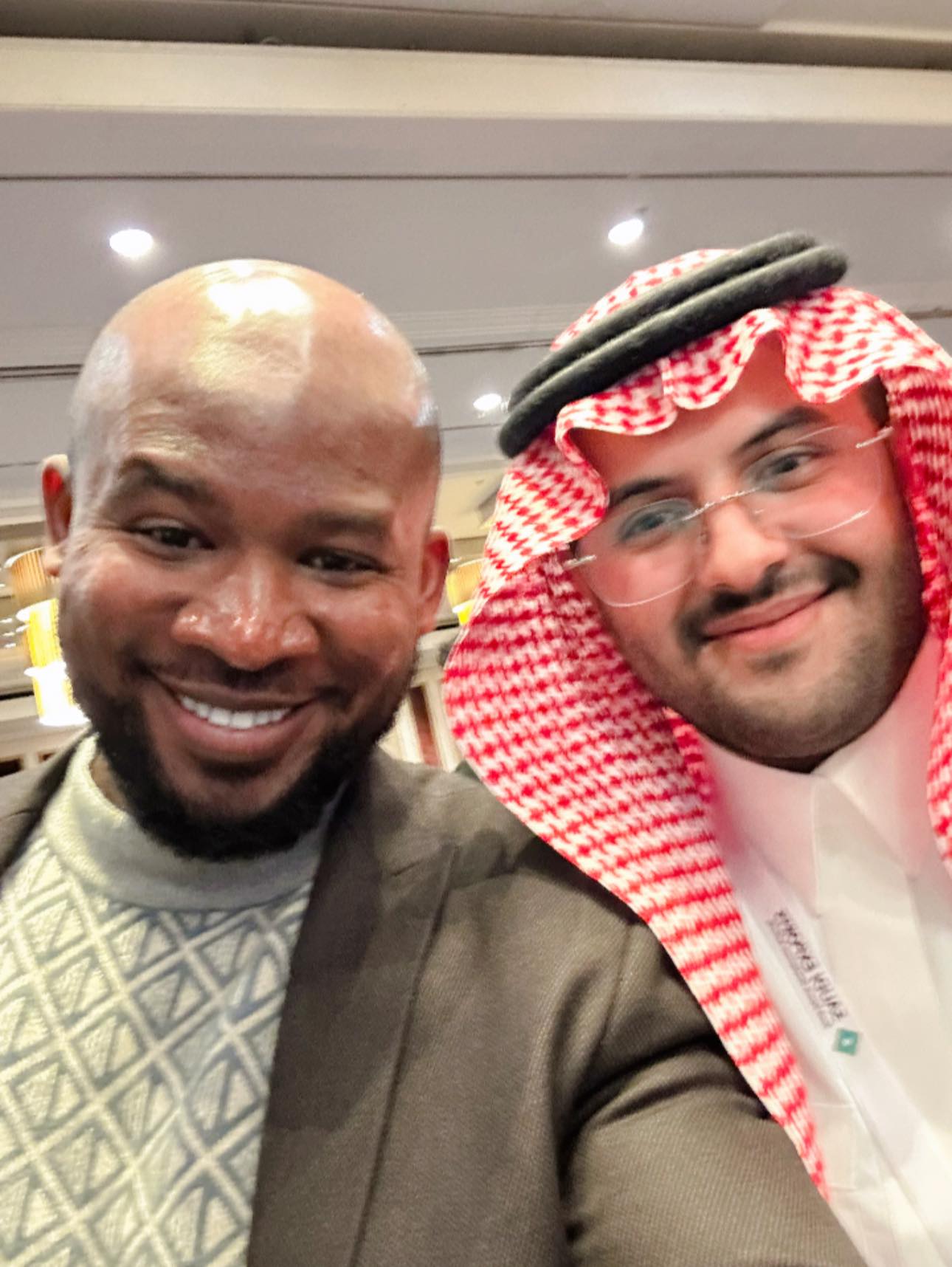Tapping into the $2 Trillion Halal Economy: A Wealth-Building Opportunity for Everyone
Have you ever heard about the $2 trillion Halal economy and how it could help you grow wealth—even if you’re not a Muslim?
This might sound counterintuitive to many, especially those unfamiliar with the dynamics of Islamic finance and Halal-certified industries. The word “Halal” often evokes thoughts limited to food restrictions or religious practices. But what if you were told that Halal is one of the most inclusive, expansive, and profitable global economic ecosystems—and you don’t have to be Muslim to tap into it?
When I first connected with Saudi stakeholders, I was extremely cautious. As someone not practicing Islam, I assumed that the Islamic economy would be insular, reserved for adherents only. I had my reservations about using Islamic financial tools like Takaful (cooperative insurance) or Sukuk (Islamic bonds), or even entering Halal-certified sectors like cosmetics or fashion. I thought there were walls I could not pass.
But then I discovered the real truth.
The Islamic economy is one of the most open marketplaces on Earth. Halal standards are ethical and values-driven, but they are not exclusive. You can build your brand, offer services, and partner in ventures in this economy—as long as you honor its framework. I took this information back to my network. People listened, followed through, and guess what? They started closing successful trades and renewing tech contracts within the Islamic economy—all without changing their religion. The experience opened up a new dimension in how I see global commerce.
YOU MAY READ
Redefining Wealth: Elon Musk, Liquidity, and the African Algorithm For Networt
A Meeting That Sparked an Idea
Just this morning, I had a business strategy call with two brilliant minds—Jonathan and Jan. The core pitch? Explore the Islamic market while also deepening our African strategy. Because Africa, particularly Nigeria, sits on an underdeveloped but high-demand Halal goldmine.
After that call, I had the strong sense that someone out there—maybe you—needs to hear this message. You might be an entrepreneur, a freelancer, a service provider, or an investor. You might be struggling to access certain markets or tired of the saturated traditional routes. Well, the Halal economy is a door you might not have considered—but it’s wide open.
The Halal economy comprises all sectors where goods and services comply with Islamic principles. The term “Halal” means “permissible” in Arabic, and its applications extend far beyond food. Halal goods and services include finance, travel, fashion, pharmaceuticals, cosmetics, logistics, media, and more. As of 2025, the Halal economy is estimated to be worth over $2 trillion, spanning more than 50 Muslim-majority countries and countless non-Muslim economies.
How Can You Participate in the Halal Economy?
Here’s a step-by-step breakdown of how you can enter the Halal economy and create wealth:
1. Start by Understanding Halal Standards
You can’t participate in what you don’t understand. Begin with education. Learn what Halal truly means—not just the food laws, but the ethical, social, and spiritual reasoning behind it.
Get familiar with global Halal certification bodies like:
- SANHA (South Africa)
- JAKIM (Malaysia)
- IFANCA (USA)
- HCA (UK)
These organizations provide Halal certifications that are trusted worldwide. Study the requirements: ethical sourcing, avoidance of prohibited substances (like pork and alcohol), and standards of cleanliness and fairness.
Also, recognize that Halal extends into your public and private dealings. Your business practices should reflect honesty, transparency, and respect—tenets not exclusive to Islam but essential in Halal compliance.
2. Pick a Niche Market
The Halal economy is vast, so you must narrow down your focus. Here are a few niche ideas with high potential:
a. Halal Foods and Beverages
In Nigeria, very few restaurants are Halal-certified. Lagos and Abuja, despite being international hubs, are underperforming in this space. A Halal-compliant fast food franchise, café, or high-end restaurant could explode in these cities.
b. Halal Cosmetics and Personal Care
There is a growing demand for beauty products that align with Islamic principles—free from alcohol, animal derivatives, or unclean ingredients. Halal skincare and cosmetics are booming, especially in Asia, the Middle East, and parts of Africa.
I currently have a business connection with a Chinese company that manufactures Halal-certified cosmetics. That’s proof: this market is already global, and it’s only expanding.
c. Halal Fashion
This one is big. Modest fashion is a billion-dollar industry on its own. A lady who joined our business group once asked what niche she should build her jeans brand around. I suggested she develop a jeans line targeted at the Islamic market—comfortable, stylish, yet modest. Sadly, she didn’t catch the insight at the time. But that niche is still wide open.
3. Expand Your Knowledge on Halal Ecosystems
If you want to understand the Halal economy deeper, consider visiting Halal hubs in:
- South Africa: The country leads the continent in Halal certification. It has efficient processes, advanced quality assurance systems, and a strong Muslim community that influences the entire Southern African region.
- Morocco, Egypt, Algeria, Tunisia: These North African countries are models of Halal economic integration. Their industries are aligned with Halal exports, especially in agriculture and textiles.
But the biggest demand remains in Nigeria, where the population is huge, predominantly youthful, and culturally inclined toward Halal consumption. Unfortunately, Nigeria’s Halal compliance framework is still weak. This represents an incredible opportunity for entrepreneurs to fill the gap—either by building local certification bodies or by educating the market.
4. Understand the Role of Islamic Finance
This is the backbone of the Halal economy. Unlike conventional banking, Islamic finance prohibits interest (riba), speculative transactions, and investments in “haram” (forbidden) industries. Instead, it emphasizes profit-and-loss sharing, ethical investing, and asset-backed financing.
Key tools you can explore include:
- Takaful: A cooperative form of insurance where members contribute money into a pool to guarantee each other.
- Sukuk Bonds: Islamic bonds that represent shared ownership in a tangible asset, project, or investment.
Non-Muslims can invest in Sukuk, use Takaful services, and work with Islamic banks—as long as they abide by the rules.
5. Offer Halal-Friendly Services
Service providers in sectors like logistics, tourism, e-commerce, and health can thrive by aligning with Halal expectations. Think Halal tourism packages, Islamic finance law consulting, Halal logistics solutions for food exports, or Halal fintech applications.
As more Muslims globally seek to consume products and services aligned with their values, entrepreneurs who can build that trust—and maintain it—will win big.
Dispelling the Bias: This Isn’t About Religion
Let’s be honest. Many people will reject this information—not because it’s inaccurate, but because it challenges their prejudice. Some will immediately dismiss this as “Islamic business” and believe they are excluded by faith. But they are wrong.
Today, many people you admire, envy, or even beg for opportunities are powered by this very economy. Some of the world’s top logistics firms, fintech companies, and hospitality brands generate billions serving the Halal market. Some don’t even advertise it.
If you’re willing to approach this space with an open mind, you’ll find it is built on universal values—fairness, ethics, hygiene, charity, and transparency. These values are not religiously exclusive. They are business fundamentals.
Final Thoughts
You don’t need to change your faith to change your finances. The Halal economy offers a blueprint for sustainable, ethical wealth creation. Whether you choose to launch a Halal fashion label, invest in Islamic bonds, build a Halal-compliant restaurant, or simply offer tech solutions to Halal businesses—the door is wide open.
And if you’re reading this with doubt, remember: this is trillion-dollar information. Don’t let ignorance or religious bias stop you from tapping into a market that is transforming the global business landscape.
YOU MAY READ
Have You Ever Heard about the $2 Trillion Halal Economy and how the Islamic economy can help you grow wealth without being a muslim yourself?When I connected newly with the Saudis, I was cautious. I didn’t know how open the halal economy was. I thought one needed to be a Muslim to participate in the economy – use Islamic financial products like the takaful and sukuk bonds or provide services. I was shocked to discover that the Islamic economy is one of the most open markets in the world. So I got people within my network to start tapping into the halal economy. Result: successful trades and renewed tech contracts within the islamic economy despite not being religious myself.This morning, in a business call with Jonathan and Jan, I pitched exploring the Islamic market while digging deeper into Africa.After this morning’s meeting, I felt someone here might become curious if I raise this topic.Here are ways to participate in the halal economy:Start by understanding Halal Standards. Study the halal certification requirements offered by bodies like SANHA of South Africa. Know that halal extends beyond food and includes ethical sourcing, cleanliness and avoiding prohibited substances. Become halal conscious in your public and private dealings. Charity is a big halal act.Then Choose a niche:You can focus on halal foods and beverages – few restaurants in Nigeria are halal compliant. If you own a halal restaurant in Abuja or Lagos, you will thank me later.Consider halal cosmetics and personal care – I actually have a business relationship with acompany in China that makes halal cosmetics and personal care.A lady who joined our Jeans business group asked which niche she should focus her brand on and i told her to create a Jeans Brand for the Islamic community. She didn’t catch the “rhema”.If you want to learn more about Halal, visit SA. South Africa is Africa’s halal hub with world class halal certification frameworks. Also plan trips to Morroco, Egypt, Algeria and Tunisia to further understand the Halal economy . But the biggest demand is in Nigeria however the the halal compliance framework Is underdeveloped.This is a trillion dollar information, many people you envy or beg money from are powered by this economy . I won’t be shocked to read religiously biased comments yet many of them are employed directly or indirectly by the islamic economy. Embrace this information with an open mind.






